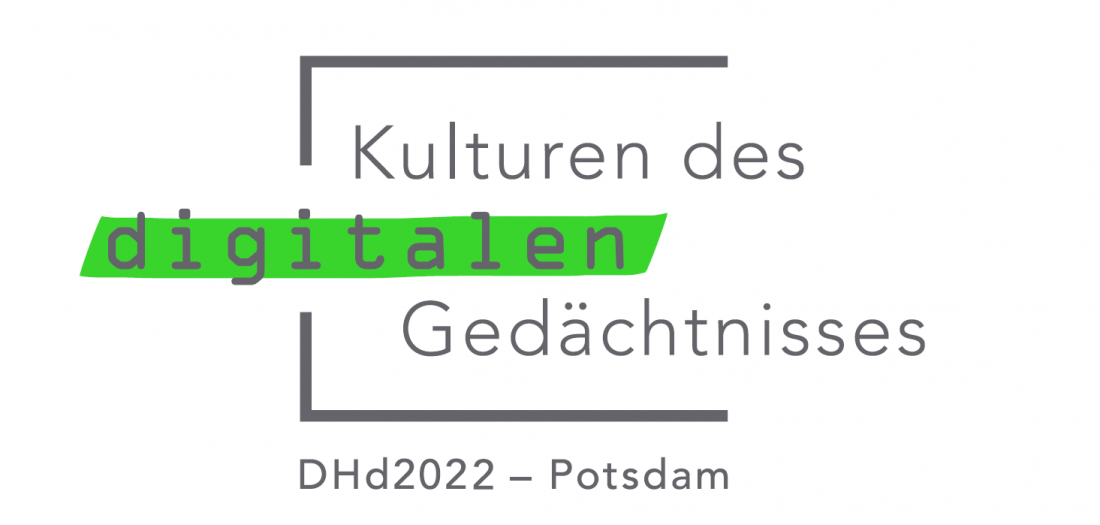The diverse program for the DH's annual conference in Potsdam is now complete
Three contributions from Trier are included in DHd 2022 “Cultures of Digital Memory”
10.11.2021 | General, Events, Project News

The 8th annual conference of the association “Digital Humanities im deutschsprachigen Raum (DHd-Verband)” will this time be hosted by the Brandenburg regional capital Potsdam from March 7 to 11, 2022. Diverse presentations and contributions on all topics from the field of Digital Humanities were requested in the preparation, for the first time a more transparent and cooperative open peer review process was used to evaluate the contributions.
From the large number of projects and ideas that the Trier Center for Digital Humanities draws on - and from which we can report in a very practical way - three submissions from the project teams “Mining and Modeling Text” (Research Initiative Rhineland-Palatinate) and “Zeta und Konsorten” (DFG) were accepted.
The contribution from the Zeta project presents as a poster presentation the complex statistical relationships of contrastive text analysis implemented in the Python package “pydistinto”. It was implemented by Keli Du and Iuliia Dudar. It is a Python package that can be used to apply different measures of distinctiveness. “Pydistinto” is being developed as part of the “Zeta and Consorts” project, whose goal is to improve the understanding of quantitative and comparative methods of text analysis. The research focuses on statistical distinctiveness measures that allow researchers to extract features that are characteristic of one text collection compared to another text collection.
In addition, the team members of “Mining and Modeling Text” (MiMoText) are very pleased to be able to attend DHd 2022 in Potsdam with both submitted papers:
- “Literary History Writing Data-Based and Wikified? Automatic extraction of thematic statements from French primary texts using topic modeling, RDF and a controlled vocabulary in LOD” (paper by Julia Röttgermann, Anne Klee, Maria Hinzmann, Christof Schöch).
- “Linked Open Data for literary historiography: the Mining and Modeling Text project” (poster presentation by Maria Hinzmann, Christof Schöch, Katharina Dietz, Anne Klee, Katharina Erler-Fridgen, Julia Röttgermann, Moritz Steffes).
Link: DHd 2022 | Digital Humanities im deutschsprachigen Raum

